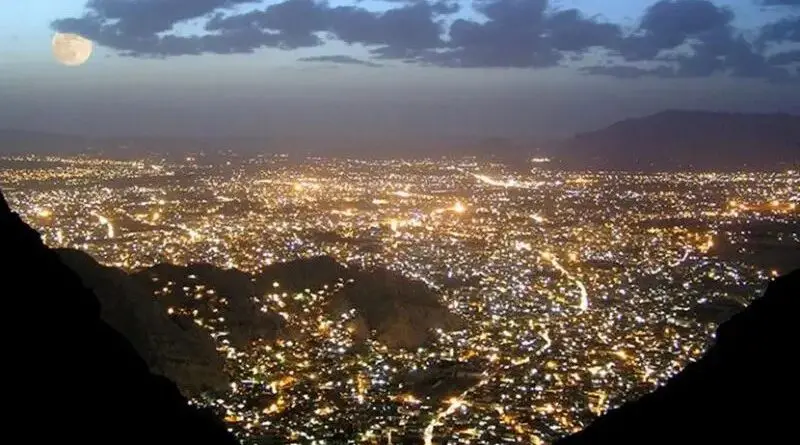Balochistan Development And Foreign Proxies – OpEd
Avinash Paliwal, an Indian author writes in his book My Enemy’s Enemy how India from the inception of Pakistan has been supporting the separatist and extremist organizations in Pakistan. From openly supporting Abdul Ghaffar Khan to the Kulbhushan Jadhav case, India is caught red-handedly involved in destabilizing its neighbors, especially Pakistan. This is not new in international politics. Throughout history, states have been using proxies and mercenaries to destabilize their rivals. Iran, Saudi Arabia, Israel, America, and India are just a few examples that used proxies to create instability in rival countries. Pakistan, which emerged from the shackles of colonizers, could not help its economy to develop because of such security-related issues. Whenever there emerges an opportunity for the country, it brings the eyes of its rivals also to halt Pakistan from availing of this opportunity.
Balochistan is a highly unstable province of Pakistan where separatist and extremist organizations are fighting against the center for their political and strategic motives. The state has been trying to bring development to the province since the start, but insurgent entities did not let any development yield benefit for the people. In 2015, the China-Pakistan Economic Corridor, a flagship project of China’s Belt and Road Initiative was started. It is hoped that the developmental project through its various energy and connectivity initiatives will bring stability to not just Balochistan but to the whole country. This multi-billion-dollar project will connect Balochistan with the world markets. Lying in front of the Indian Ocean, Balochistan will get connected with the Gulf, Africa, and other world markets with the help of China. But as refereed Paliwal, my enemy’s development can’t be tolerated. Several foreign proxies are working in Balochistan to destabilize CPEC and other social features of the region.
Analysts believe that CPEC can bring stability to the whole South Asia region if benefitted, efficiently. Pakistan multiple times has offered the regional countries to be a part of this developmental project for the sake of regional stability. But states like India are not willing to bring stability and peace to the region. Following the realpolitik, based on what Kautilya had promoted centuries earlier, India won’t let Pakistan prosper. Firstly, it kept on supporting Abdul Ghaffar Khan for Pashtunistan. Then in 2016, Indian spy Kulbhushan Jadhav was arrested by Pakistan security forces from Balochistan. Jadhav confessed that he was a serving Indian Naval Officer who was assigned the task to destabilize the CPEC projects. Currently, there are multiple terrorist organizations working to halt the development of Balochistan. Balochistan Liberation Army, Balochistan Liberation Front, Balochistan Republican Army, and Jundullah are some of these organizations. These networks have carried out attacks against security forces and Chinese workers in the region. They have been involved in the Chinese consulate attack, Karachi University attack, Hotel Pearl Continental, Gwadar attack, and many other suicide bombings directly on Chinese workers. Some sources have confirmed Aslam Baloch, commander of the Majeed Brigadier in the Balochistan Liberation Army got his medical treatments from India.
India openly challenges the legality of CPEC. Recently, Pakistan’s Prime Minister Shahbaz Shareef visited China where he discussed the progress with Chinese President Xi Jinping. Indian External Affairs Ministry spokesperson Arindam Bagchi responded by saying, “CPEC includes projects on the sovereign territory of India under forcible and illegal external occupation. We resolutely reject any attempts to utilize such projects to change the status quo in this area. Any attempts to involve third parties in such activities are inherently illegal, illegitimate, and unacceptable and will be treated as such by us”. Superiority comes from comparison. One state will be superior when the other will be weaker. And that is the motive of India behind its illegal actions in Balochistan.
Moreover, besides such direct Indian influence to destabilize Balochistan, other factors are indirectly impacting the progress of these projects. US-China rivalry is one of these factors. The US considers China as a rising power with the intent and capabilities also to challenge the existing world order. Different theoretical perspectives, prominently structural realism, and Thucydides Trap elaborates that the US will never let China challenge its hegemonic position. For this purpose, it is extraordinarily supporting India to influence Chinese actions in the region. This is one reason also that India is not accepting the legitimacy of CPEC and trying to halt these developmental projects.
The people of Balochistan must understand the real motive of these foreign proxies. The government has been struggling a lot against these extremist organizations. Security forces are often attacked by them and are still there to protect the people and eradicate these entities. Social and economic grievances of the Baloch people are because of these entities who are not letting any investment come to the region. The official website of BLA openly asks China to leave Balochistan with its investments. These factors will ultimately impact the socio-economic and political stability of the Baloch people. To eradicate such forces, Baloch must stand with the state and security forces to pave the way for development coming to the province.
Muhammad Ahmad Khan is a student of MPhil in International Relations at NDU

